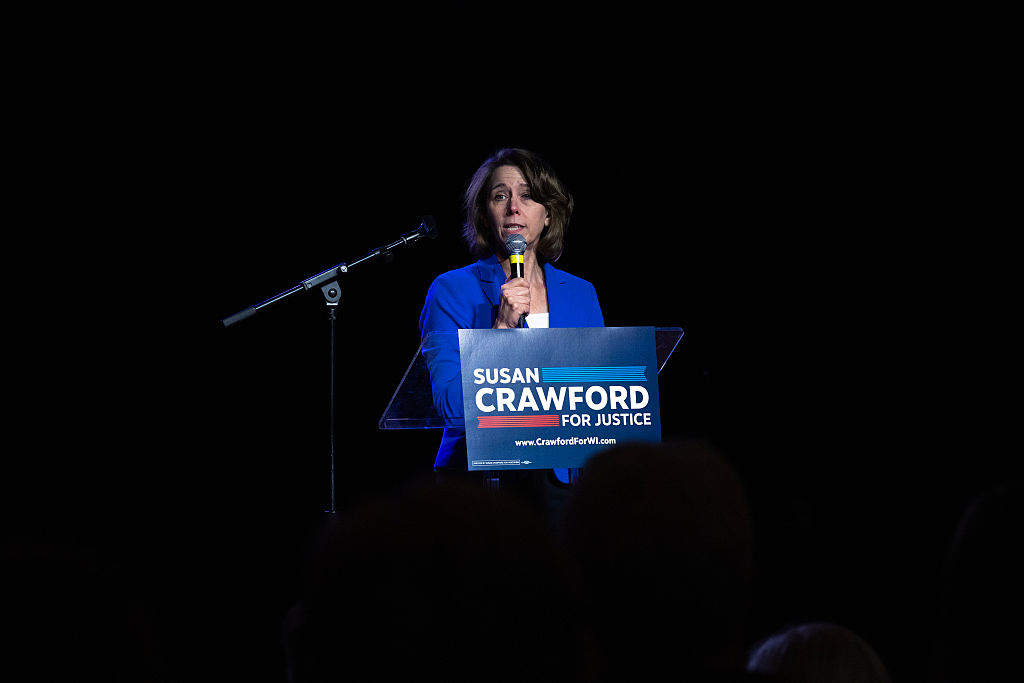Check the liberal reaction to Florida Governor Ron DeSantis’s January decision to block a new Advanced Placement course on African-American studies in the state’s high schools and you would think the Sunshine State was reinstituting Jim Crow.
The Washington Post’s Karen Attiah — always one to jump at the chance to spew rhetorical fireworks when it comes to all things race — accused DeSantis of normalizing “anti-blackness” and “making institutional anti-blackness lawful again.” CNN’s John Blake asserted that DeSantis’s move “echoes similar decisions made by fascist dictators,” including Vladimir Putin. Zeeshan Aleem at MSNBC accused DeSantis of launching “an assault on free thought” and “[waging] war on the First Amendment,” adding some references to the Confederacy and the Ku Klux Klan for good measure.
Of course, Florida’s political leadership didn’t offer any racist or “anti-black” reasons for blocking the new AP course, which is slated to be released on the first day of Black History Month. Rather, education officials explained, “As presented, the content of this course is inexplicably contrary to Florida law and significantly lacks educational value.” Florida Commissioner of Education Manny Diaz, Jr. tweeted that the course promotes an obviously biased perspective on such topics as Critical Race Theory, intersectionality, queer studies, the penal system, and racial reparations.
That more or less tracks with what many observers have argued since information on the AP course first became available. National Review reporter Stanley Kurtz noted that “the readings almost uniformly consist of neo-Marxist agitation — pleas for a socialist transformation of America.” Little surprise, given that prominent CRT advocates such as Eduardo Bonilla-Silva, Kimberlé Crenshaw, and Patricia Hill Collins are on the course’s reading list. As I discussed in a December Federalist article, the course’s curriculum “content writing team” is staffed by leftist racial ideologues.
Information on the course’s bizarre lessons hasn’t even been hidden from the public. Course content, according to an article in Time, includes “the significance of the Marvel Black Panther movie.” Smithsonian Magazine reported that intersectionality is “a key tenet of the class.” The website Best Colleges reported: “Students will learn how to advocate for Black, Indigenous, and people of color (BIPOC) — in and outside of postsecondary environments.”
Surely a course that teaches students to advocate for radical political causes was always going to elicit public backlash. Surely creating an entire lesson that offers a favorable perspective on voodoo — a religion that engages in spirit-possession, divination, causing harm to enemies, and ritualistic cannibalism — would spark national controversy. “It made me think that not everything has to be bad… There could be alternate ways of looking at things,” a student told the Washington Post after the course’s voodoo lesson. How…nice?
The entirely predictable liberal reaction elides one particularly important point: the curriculum of other AP courses is already awash with narratives related to racial minorities and racial grievance. AP US History, for example, devotes extensive effort to cataloging the slave trade, chattel slavery, racism, and Jim Crow. Reading lists for AP English include books on colonialism (e.g. Josef Conrad and China Achebe) and race in America (e.g. James Baldwin, Ralph Ellison, Lorraine Hansberry, Harper Lee, Richard Wright, Toni Morrison, and Gloria Naylor). AP Art History devotes almost half of its curriculum to non-Western topics.
I could go on, but does anyone really doubt that the current list of available AP courses in Florida is not already tailored to racial, sexual, or gender narratives? And does anyone doubt that if students aren’t indoctrinated in such themes in high school that they won’t get them when they begin their collegiate studies? When I was an undergraduate at the University of Virginia twenty years ago, it was nearly impossible for history majors like me to avoid taking courses that weren’t heavy on racial or sexual injustice. Today, one must look hard to identify major universities that don’t have an African-American Studies or Gender Studies program.
We might also cite the informal education American youth receive through social media, the entertainment industry, advertising and the rest of our dominant cultural institutions, all of which expend boundless energy in emphasizing racial grievance narratives. Log into Twitter, Facebook, or Instagram; turn on your television or radio; or just walk down any city street — you will inevitably be reminded that racial and sexual identity (and their concomitant grievances) are the most important topics in our nation’s public square.
In other words, the charge that Florida’s resistance to a defiantly ideological AP course will return the state to Jim Crow is absurd. DeSantis and his administration can’t stop Florida’s youth from exposure to this stuff, no matter how detestable such ideas may be. It’s in the air we breathe, from Coral Gables to Vancouver.
Rejecting one little AP course, however noble, amounts to a drop in the bucket. That such powerful ideologues are driven to such extremes to ensure they encounter no obstruction at all should give us pause.

























